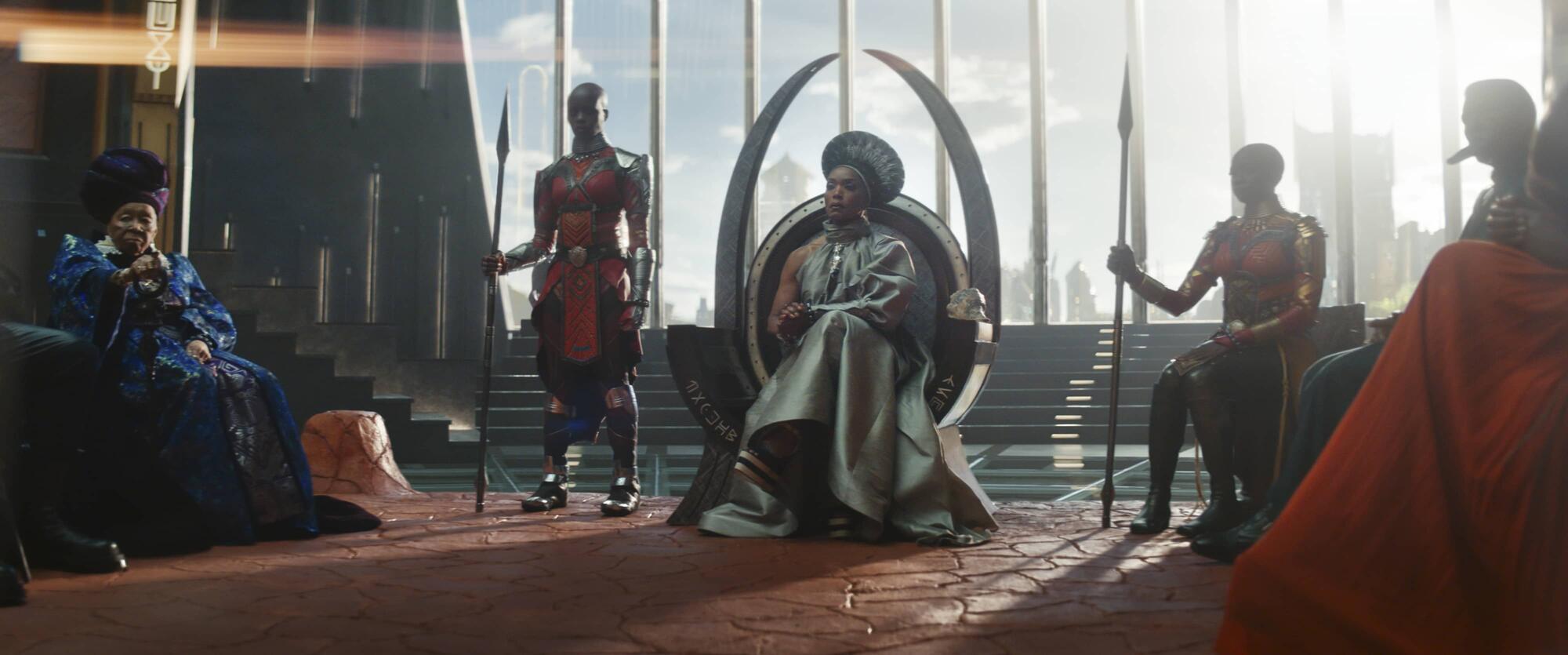Marvel movies are expanding who is seen as the hero
Comic culture reporter David Betancourt discusses how increasing representation has played a part in building the Marvel Cinematic Universe.

(L-R): Dorothy Steel as Merchant Tribe Elder, Florence Kasumba as Ayo, Angela Bassett as Ramonda and Danai Gurira as Okoye in Marvel Studios' "Black Panther: Wakanda Forever." Photo courtesy of Marvel Studios. © 2022 MARVEL.
Comic books have been a mainstay for decades, growing our imaginations and giving us hope when the world around us seems bleak.
It’s an escape that we now get a chance to experience in the theaters. Over the past decade, we’ve seen the world of superhero movies grow into its own genre.
David Betancourt, a comic culture reporter with the Washington Post, says comic book stories have exploded into the entertainment industry over the past decade.
“What we’re seeing right now is the remnants of the Big Bang from that first ‘Avengers’ movie in 2012. The genesis point of the Marvel Cinematic Universe goes all the way back to 2008 with the first ‘Iron Man’ movie.”
There are multiple films and television series coming from Marvel studios over the next few years, making it clear that superheroes aren’t going anywhere anytime soon.
In recent years, the diversity of superheroes among Marvel has continued to grow. In 2017, “Black Panther,” featuring the late Chadwick Boseman, Angela Bassett and Lupita Nyong’o, was an instant success.
“It was such a gigantic moment for Marvel Studios and for Black people all over the world, because it represented seeing yourself as a superhero, truly, for the first time.” — David Betancourt, Washington Post comic culture reporter
The film showed Black heroes as more than just supporting characters, and the representation has extended through Iman Vellani in “Ms. Marvel,” Oscar Isaac in “Moon Knight” and an all-Asian cast in “Shang-Chi.”
Betancourt says Marvel films are only following the blueprint of their original comic books.
“It started with ‘Avengers: Endgame,’ and giving Anthony Mackie and Captain America shields and saying, ‘You’re the next Captain America,’ which isn’t some political moment. That’s something that happened in the comics as well.”
CultureShift’s Tia Graham spoke with Betancourt about the golden age of superhero films, the building of cinematic universes and the expanding genre.
Listen: Betancourt talks expanding representation in superhero films.
Trusted, accurate, up-to-date.
WDET strives to make our journalism accessible to everyone. As a public media institution, we maintain our journalistic integrity through independent support from readers like you. If you value WDET as your source of news, music and conversation, please make a gift today.
